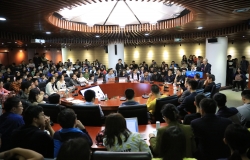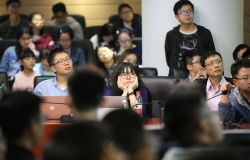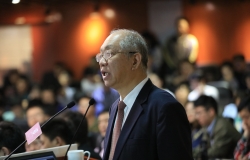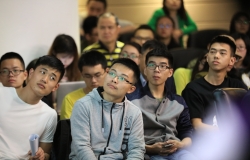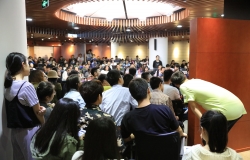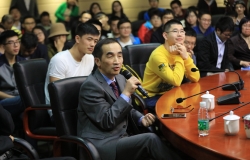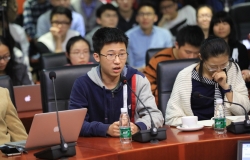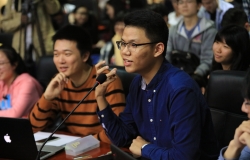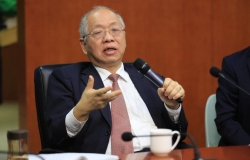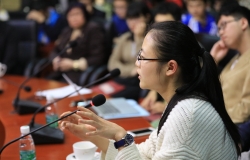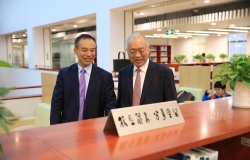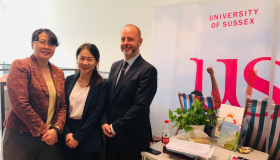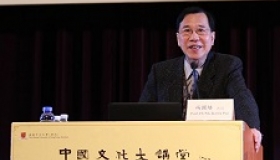Walk with Yau Shing-Tung through the Maze of Mathematics
Professor Yau Shing-Tung, famous mathematician, winner of Fields Medal and a foreign member of Chinese Academy of Sciences, brought a fabulous lecture to CUHK(SZ) on March 13.
“Mathematics research should never be confined in the subject itself. It should cover its peripheral issues, i.e. how they have occurred and disseminated.” Professor Yau came to The Chinese University of Hong Kong, Shenzhen (“University”) to introduce to the students the history of mathematics.
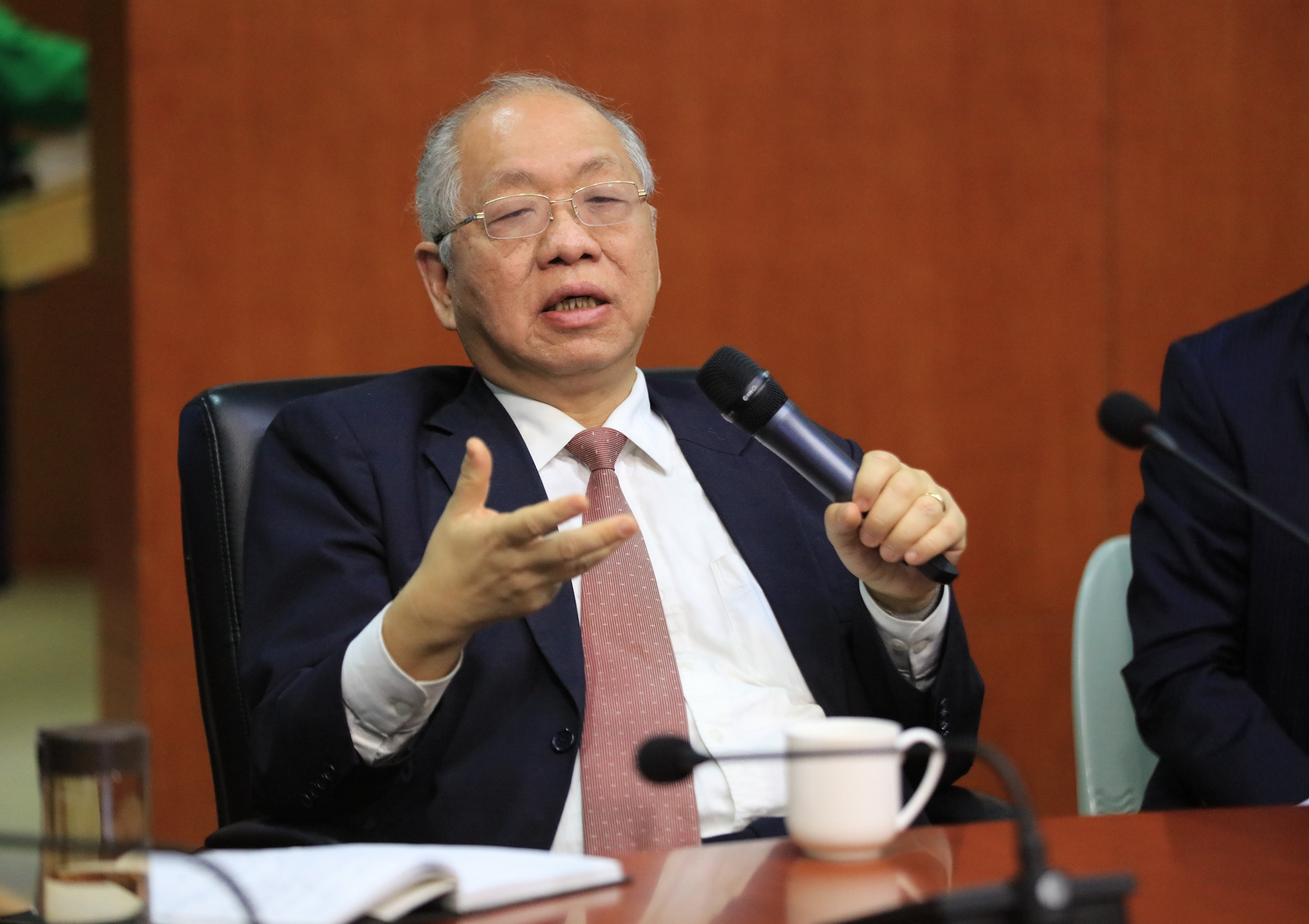
Why do we need to study the history of mathematics?
The history of mathematics is not a list of facts. Rather, it intends to demonstrate how knowledge disseminates and what values it has created. According to Yau, we should keep in mind three purposes in mathematical development: why, how and what.
Mathematical concepts do not materialize out of thin air and we need to find their sources. Mathematics problems can be quite complex, but there exist some traces that we may follow to understand how they evolve. We may have to evaluate what impacts and values the concepts have created for society, which helps scholars to better develop their own thoughts.
Mathematics is not bunch of numbers, concepts or reasons. Rather, it is a fine-tuned machine, where each component, big or small, plays a role and only by studying them in perspective can we truly appreciate the amazing beauty of the machine. “It is like a symphony made up by different instruments and musicians directed by one conductor, who controls the overall performance. It is also like the plots you would find in Dream of the Red Chamber, where various literary genres are presented that seem disparate but actually interlocked, edging readers to follow a general story line.” Professor Yau compared the complexity of mathematics to both musical performance and literary creation, stressing the importance of a comprehensive understanding of the history of mathematics to academic research. “Mathematics may have presented us numerous theorems. But only those that are based on a uniform philosophy can impact society,” said Professor Yau.
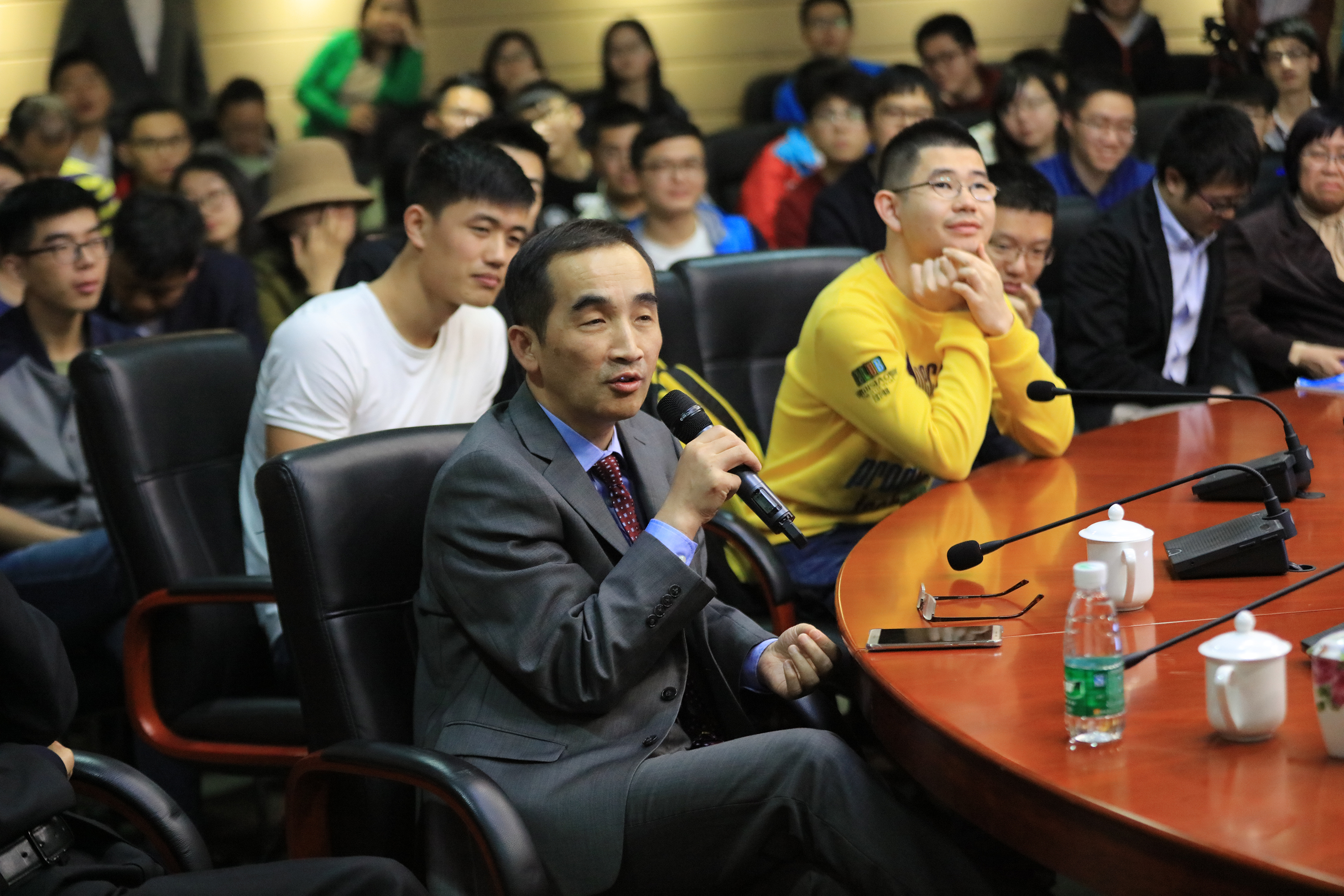
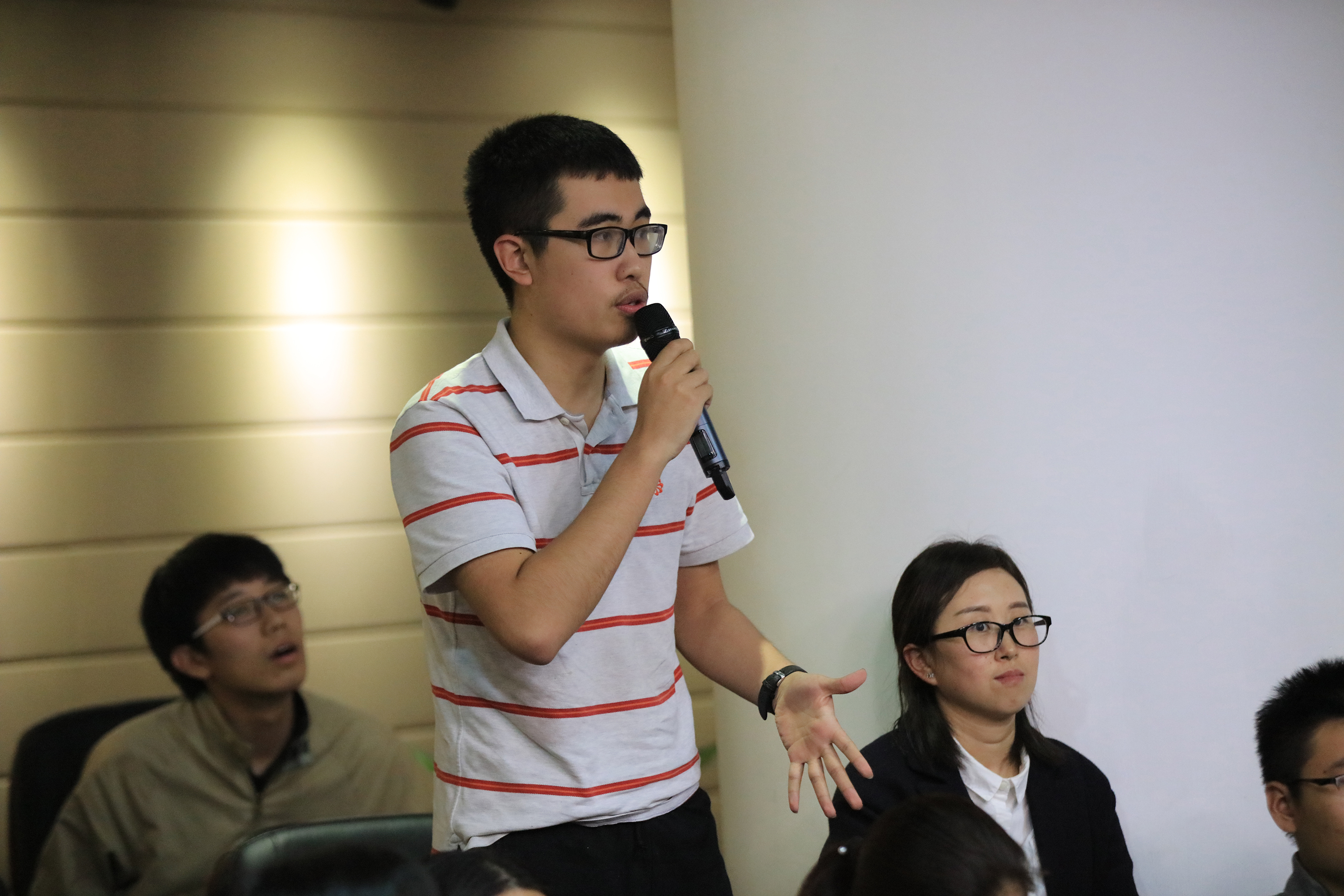
A word to young scholars: Be humble
He remains humble when he mentions great mathematicians in history. He regrets that few contemporary scientists have the passion for science that Archimedes once had when he cried “Eureka, Eureka”, running around naked after discovering the buoyance principle.
China’s rejuvenation relies on science, whose cornerstone is mathematics. Mathematics affects every aspect of our life from stars in deep space to daily necessities on earth. Solving a couple of specific problems would not make China great. Only with a forward-looking vision and a global mindset can the nation rise up and lead the world. Professor Yau firmly believes that young students today should contemplate how to discover, analyze and evaluate information to enjoy the beauty of mathematics as a science, which takes in and condenses the essential elements from various disciplines. Without cultural empathy, this is unlikely to be achieved.
Professor Yau points out that in contemporary society, pursuit of fame, wealth and fame has unfortunately become a mainstream. However, he believes that young scholars have great potentials and they will do great things if they follow the right examples in history that have illuminated the sky throughout the course of human exploration.
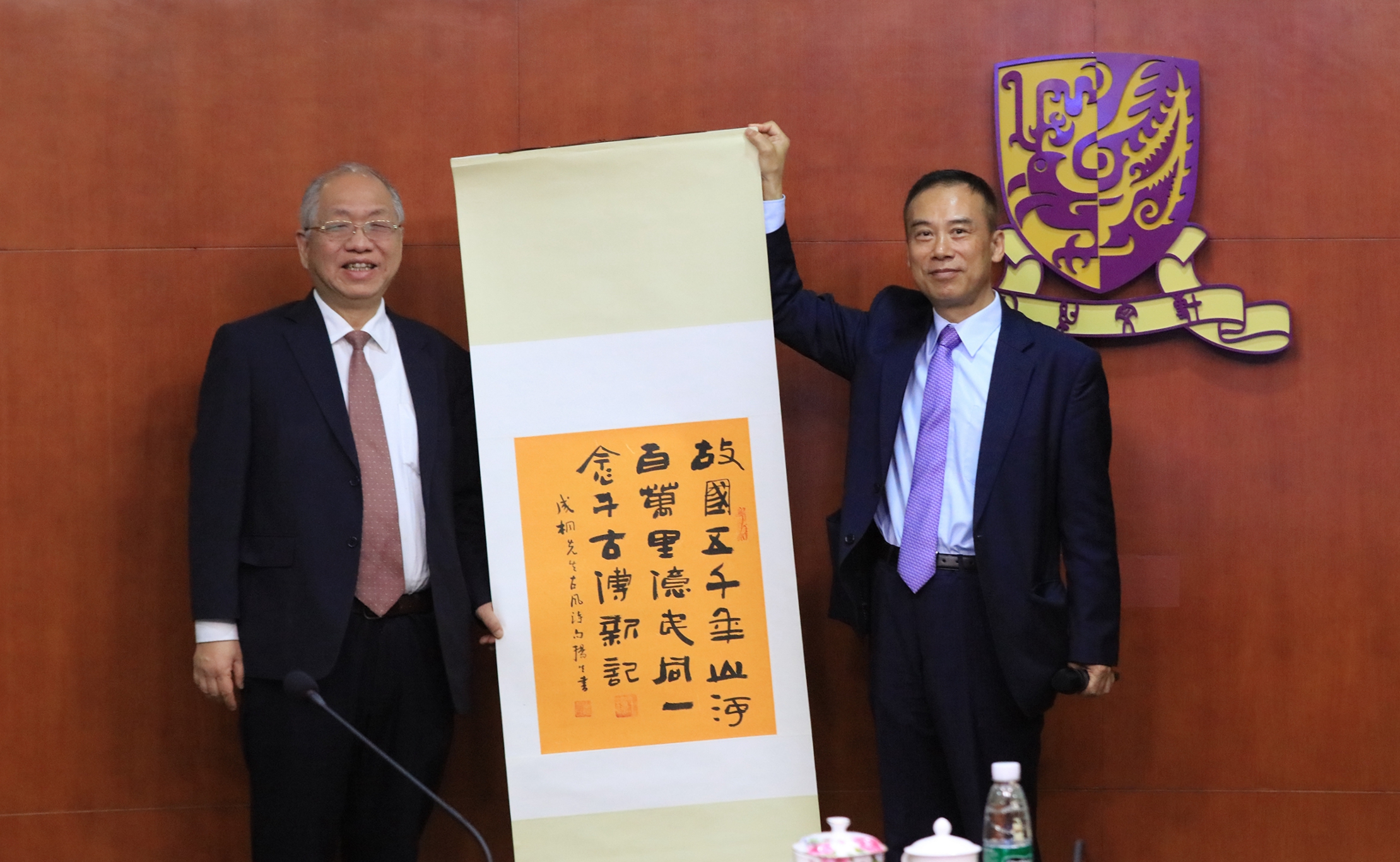
Speaker Profile:
Professor Yau Shing-tung is a world famous mathematician and the first overseas Chinese winner of the Fields Medal. He is Distinguished Professor-at-Large and Director of The Institute of Mathematical Sciences (IMS) at The Chinese University of Hong Kong (CUHK) and William Casper Graustein Professor of Mathematics at Harvard University.
During his 40 years of research on mathematics, he has received numerous awards and honours, including the Fields Medal in 1982, the Veblen Prize in Geometry (1981), the MacArthur Fellowship (1985), the Crafoord Prize (1994) and the US National Medal of Science (1997). In 2010, Professor Yau received the Wolf Prize in Mathematics in recognition of his lifetime contributions to geometric analysis and his enormous impact on many areas of geometry and physics.

